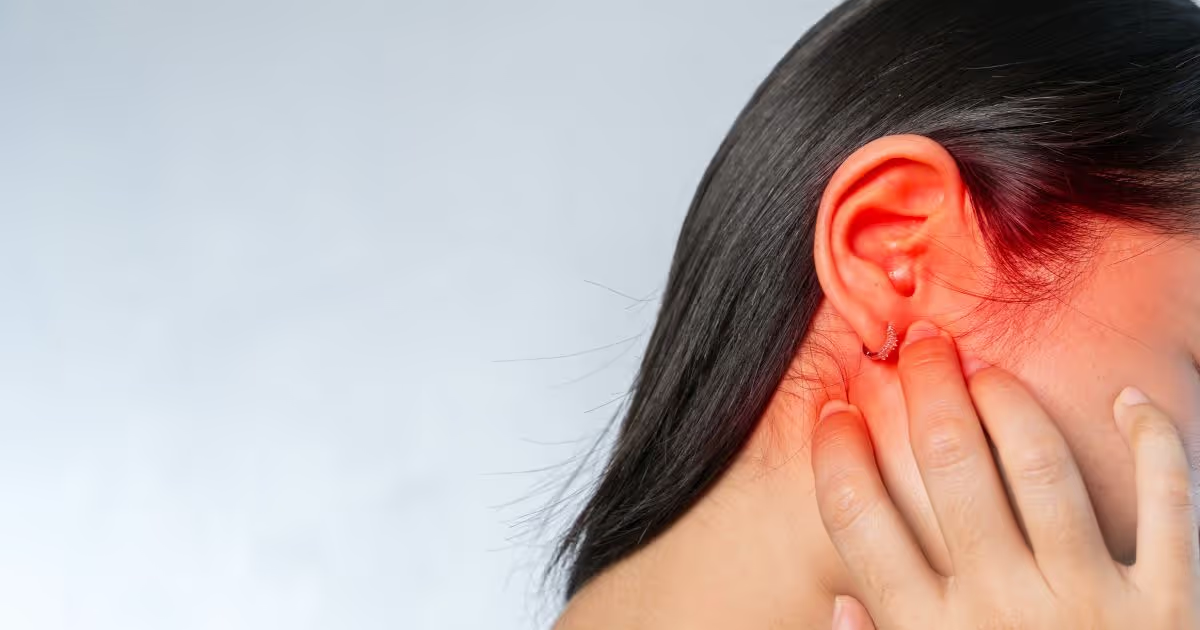True or False: Hearing and Ear Health
Myths and Facts About Hearing and Ear Health
Hearing is a vital sense that connects us to others and the world around us. Yet, a vast amount of information—both correct and misleading—circulates widely online. Sometimes, many of these misconceptions can lead to misunderstandings and prevent people from properly caring for their hearing health.
This article draws on evidence-based insights from medical specialists to provide clear, accurate information. So, you can take better care of your ears and hearing and mitigate unnecessary worry caused by misinformation circulating on social media. Let’s set the record straight.
Is it true that old age is the primary cause of hearing loss?
The answer is no.
Hearing loss comes in diverse forms, has various causes, and can occur at any age, including in newborns. In most cases, individuals are born with normal hearing, which gradually deteriorates over time and manifests as hearing loss later in life. However, this does not mean that all older adults will inevitably experience hearing loss. Other contributing factors must also be present, such as prolonged exposure to loud noise, use of ototoxic medications, infections, tumors, or abnormalities in blood circulation, among others.
Is sensorineural hearing loss curable?
The answer: It depends on the type of nerve damage.
Sensorineural hearing loss refers to damage to the inner ear or the auditory nerve. In cases of acute sensorineural hearing loss, if you seek medical attention promptly, there is a possibility of full recovery or significant improvement. However, if the condition is due to permanent nerve damage, current medical technology and treatments cannot fully restore hearing. For this reason, it is crucial to monitor your hearing regularly and undergo hearing evaluations at least once a year to enable timely detection and intervention.
Therefore, the belief that sensorineural hearing loss is curable can be either true or false, depending on whether the condition is acute or chronic.
Does ringing or hearing noises in the ears indicate a psychiatric condition that requires evaluation by a psychiatrist?
The answer: It depends on the nature of the sound.
Hearing noises in the ear, or tinnitus, is the perception of the sound inside the head or ear that does not originate from an external source. It can come in various forms. Some may hear ringing, buzzing, pulsing, clicking, or a whooshing sound. These internal noises differ from person to person and often become more noticeable in quiet settings. Tinnitus that significantly disrupts daily life, affecting work or sleep and causing distress, anxiety, or irritability, requires prompt medical evaluation to determine the cause and begin treatment before the condition worsens.
Therefore, the misconception that tinnitus is solely a psychiatric condition requiring psychiatric evaluation depends on the nature of the sound experienced. If the sounds are typical tinnitus manifestations, such as whooshing or pulsing, it is appropriate to consult an ear, nose, and throat (ENT) specialist. However, if the auditory phenomena differ significantly in character, a referral to a psychiatrist may be necessary.
Do people with profound deafness require hearing aids for effective communication?
The answer: Yes and no.
Profound deafness is hearing loss of 90 decibels or greater. Hearing aids only amplify sounds in the outer ear canal; from there, the sound travels to the inner ear, where it is converted into nerve signals that the brain interprets. Hearing aids cannot generate or restore these nerve signals. Therefore, while hearing aids can amplify sounds for individuals with profound hearing loss, they often do not enhance the clarity or comprehension of speech.
Nonetheless, the use of hearing aids remains essential for people with profound deafness, as they provide consistent stimulation to the auditory nerve, helping to prevent further deterioration of hearing function. Additionally, supplementary communication strategies—such as lip reading, observing facial expressions and gestures, reading written text, and watching videos—can significantly enhance the ability of profoundly deaf individuals to distinguish sounds and engage in effective communication.
In summary, the belief that hearing aids alone enable profoundly deaf individuals to hear and communicate fully is partly true and partly false. While hearing aids improve sound awareness, effective communication typically requires the aids of lip reading and facial expressions.
Are hearing tests unnecessary?
The answer is: Not true.
Hearing is an essential sense that we rely on continuously. Hearing assessments not only help us know our current hearing status but also enable early detection of abnormalities, facilitating timely intervention or management of hearing issues. Neglecting hearing problems can lead to communication difficulties and social isolation and even negatively impact mental health. Because we always use the hearing sense every day, the belief that hearing tests are unnecessary is therefore incorrect.
Is it true that hearing aids worsen hearing loss?
The answer is no.
Hearing aids are small sound-amplifying devices available in various types, styles, and technologies. It is crucial to select a hearing aid that meets quality standards and is properly programmed to match the individual’s hearing level and lifestyle needs, ensuring maximum benefit. Additionally, it is essential to maintain overall ear health by avoiding certain medications that are toxic to the ear and by promptly seeking medical attention and treatment if any ear infection or inflammation occurs.
Crucially, hearing aids should not be self-adjusted. Programming and fitting must be performed by qualified audiologists or hearing aid specialists, according to the audiometric evaluation. Improper fitting or excessive amplification can damage the delicate hair cells in the inner ear, potentially worsening hearing loss.
Therefore, the belief that using hearing aids causes further hearing loss is unfounded.
Is it true that we do not need to clean our ears by removing earwax?
The answer: Yes.
Earwax is naturally produced and eliminated by the body without any need for intervention. However, many people mistakenly believe that earwax is simply dirt or buildup, so they try to remove it or use a cotton bud to clean their ears frequently. This practice often leads to problems such as impacted earwax and can cause inflammation or infection of the outer ear in some cases. Severe cases can lead to the formation of pus or infections that spread to the middle ear.
Therefore, it is advisable not to bother with earwax removal. If cleaning is necessary, only wipe the outer visible part of the ear with a cloth or tissue as much as can be seen with the naked eye.
Is it true that listening to loud music through headphones can cause hearing loss?
The answer: Yes.
Prolonged exposure to sounds exceeding 85 decibels can lead to progressive hearing loss. When using headphones, it is advisable to keep the volume at no more than 60% of the maximum level and limit continuous listening to no longer than two hours, followed by breaks to rest your ears. Avoid using headphones in noisy environments, as they often induce unintentional volume increases that can further damage hearing.
Therefore, the belief that listening to loud music through headphones causes hearing loss is indeed true.

The ear is a vital organ that many people surprisingly overlook. Even subtle signs or minor abnormalities can progress into serious issues. If you notice any changes or problems with your hearing, it is crucial to seek prompt evaluation by a specialist for proper assessment and appropriate guidance.



